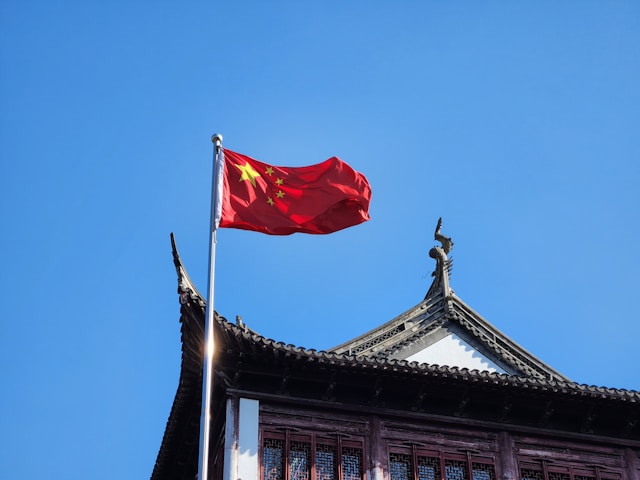
If a judgment debtor refuses to fulfill the obligations specified in a legal document, a Chinese court may take the following fourteen (14) execution measures.
1. Mandatory disclosure of the judgment debtor’s property
The judgment debtor shall report his property situation existing at the moment and one year before he has received the notification of execution. If the judgment debtor refuses to do so or makes a false report, the court may impose a fine or detention on him, or his legal representative, principal heads or the person directly responsible.
2. Execution of the judgment debtor’s cash and financial assets
The court shall have the right to make inquiries with relevant units on the judgment debtor’s property, such as savings, bonds, stocks and funds, and may seize, freeze, transfer or appraise his property according to different situations.
3. Execution of the judgment debtor’s movable and immovable property
The court shall have the right to sequester, seize, freeze, auction off or sell off the judgment debtor’s movable and immovable property, the amount of which shall not go beyond the scope of the debtor’s obligation.
4. Auction or sale of the judgment debtor’s property
After sequestering or seizing the judgment debtor’s property, the court shall instruct him to fulfill his obligations specified in the legal document. If the debtor fails to fulfill his obligations upon expiration of the period, the court may, auction off the sequestered or seized property. If the property is not suitable for auction or both parties agree not to auction off the property, the court may entrust relevant units to sell off the property or sell off the property by itself.
5. Delivery of the judgment debtor’s property
With respect to the property or negotiable instruments specified for delivery to the judgment creditor in the legal document, the court shall be empowered to order the person who has in possession the property or negotiable instruments to deliver it to the creditor, or after carrying out a compulsory execution, to forward the property or negotiable instruments to the creditor.
6. Transfer of ownership of the judgment debtor’s property
Where the legal documents specifies the transfer of ownership of real estate, land, forest right, patent, trademark, vehicle and vessels, the court may ask relevant units to assist in execution, i.e., to handle certain formalities for the transfer of certificates of such property right.
7. Execution of the judgment debtor’s income
The court shall be empowered to withhold or withdraw the judgment debtor’s income, the amount of which shall not go beyond the scope of the debtor’s obligation. The employer that pays wages to the judgment debtor, as well as the banks where the debtor has bank accounts, must cooperate in the execution of income.
8. Execution of the judgment debtor’s creditor’s right
The court shall be empowered to enforce the mature creditor’s right that the judgment debtor holds against another party, and notify the said another party to perform the liabilities to the judgment creditor.
9. Double interests for belated payment
If the judgment debtor fails to fulfill his obligations concerning pecuniary payment within the period specified by a judgment or ruling rendered by a Chinese court, an award rendered by a Chinese arbitral tribunal, or any other legal document, he shall pay double interest on the debt for the belated payment.
However, in the case of requests to enforce a foreign court judgment or a foreign arbitral award in China, the judgment debtor is not required to pay such double interest.
10. Exit restriction
The court shall be empowered to impose exit restriction against the judgment debtor. If the judgment debtor is a legal person or an entity, the court may impose exit restriction against its legal representative, main responsible person or the directly responsible person who may influence performance.
11.Restriction on high-level consumption
The court shall be empowered to impose restrictions against the judgment debtor on his/her high-level consumption and relevant consumption not necessary for livelihood or business operation. The restricted high-level consumptions include having high consumption activities at start-rated hotels; commuting by airplane, first class seat if by train or second class or better if by water; taking any seat of the high-speed trains started with G; purchasing real estate; paying huge tuition for his/her children to go to private schools. If the judgment debtor is listed on the List of Dishonest Judgment Debtors, the court may also impose such restrictions on the debtor.
12. List of Dishonest Judgment Debtors
If the judgment debtor undertakes certain dishonest conduct, such as to circumvent execution through diversion of property, the court shall be empowered to include the debtor into the List of Dishonest Judgment Debtors, and to impose credit discipline on the dishonest debtor in matters, such as financing and borrowing, market access and accreditation.
13. Fine and detention
The court is empowered to impose a fine or detention on the judgment debtor, depending on the seriousness of the act. If the judgment debtor is a legal person or an entity, the court may impose a fine or detention on its principal heads or the person directly responsible. A fine on an individual shall be less than RMB 100,000; a fine on a legal person or an entity shall be between RMB 50,000 and RMB 1,000,000. The period of detention shall not be longer than 15 days.
14. Criminal responsibility
If the judgment debtor has the capability to satisfy the judgment or ruling rendered by a court but refuses to do so, and the circumstances are serious, the debtor shall be convicted and punished for committing the crime of refusing to satisfy a judgment or ruling. The offender shall be liable to a fixed-term imprisonment of not more than three years, criminal detention or a fine.
If you would like to discuss with us about the post, or share your views and suggestions, please contact Ms. Meng Yu (meng.yu@chinajusticeobserver.com ).
If you wish to receive news and gain deep insights on Chinese judicial system, please feel free to subscribe to our newsletters (subscribe.chinajusticeobserver.com ).
Contributors: Guodong Du 杜国栋 , Meng Yu 余萌








